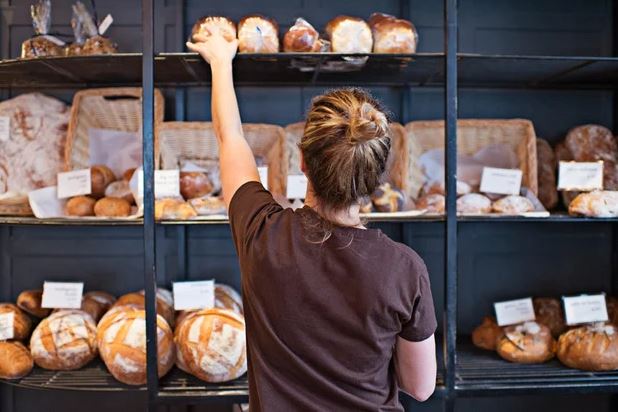The governor of the Bank of England, Andrew Bailey, is warning of "apocalyptic" hikes in food prices, not just in the UK but across the world, as a result of Russia's invasion of Ukraine.
While Ukraine has sufficient stocks and is not worried about planting crops, the country cannot export them, Bailey told MPs at a London parliamentary committee on Monday, report UK media.
"That is not just a major worry for this country, but a worry for the developing world. I am sorry for being apocalyptic, but it is a worry," he said.
In March, food prices in the UK already rose by 5.9% and a further increase is expected. In Belgium, too, groceries cost 6% more than a year ago in April, according to calculations by consumer organisation Test-Achats.
Related News
- Grocery shopping 6% more expensive compared to last year
- 'Shrinkflation': why you are paying the same for less in the supermarket
- Nearly 1 in 3 food companies forced to reduce or shutdown production
As Ukraine is a major producer of wheat and sunflower oil, the war has already led to several supermarkets in Belgium limiting sales of oil and flour products per customer – not (yet) due to a lack of stock, but as a precaution.
On Monday, Bailey warned that rising energy and food prices will further increase inflation and cause a "very large wage hit," with unemployment eventually on the rise again and millions of Britons at risk of ending up in poverty.
Bailey stressed that the UK's inflation woes are largely beyond the Bank's control. It is difficult to understate the effect that Brexit has had on the UK economy, leaving it more exposed to external threats. UK inflation is expected to hit 10% this year.
In Belgium, inflation reached a 39-year high at the end of March, when the official Belgian statistics service Statbel outlined that inflation rose to 8,31% – the highest level of inflation witnessed in Belgium since 1983.
When asked if he felt helpless to do anything about rising inflation, Bailey replied "yes."
€3 for a loaf of bread
A concrete example of these predicted price increases is the rapidly rising cost of bread. The 'Bakkers Vlaanderen' federation of Flemish bakers highlights that the price of a loaf of bread has already risen from €2.40 to €2.70 in the past year and it is "not inconceivable that a loaf of bread will soon cost €3."
Both the war in Ukraine and the drought in India will significantly reduce this year's grain harvest. "As a result, the price of flour will continue to rise, and it has already more than doubled by January 2021," Eddy Van Damme of Bakkers Vlaanderen told Gazet van Antwerpen.
In the meantime, energy prices and even the price of bread bags are also skyrocketing. "Measures have already been taken, this summer for example the price of gas will drop, but at the moment bakers are faced with high bills," Van Damme said.
"That inevitably causes price increases but there are other factors at play as well," he added, referring not only to rising production costs but also to rising personnel costs. However, they do not want to make any hasty predictions. "We do not have a crystal ball, so it is difficult to say how prices will evolve."

